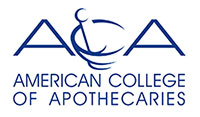Transforming pharmacy practice through innovation – one patient at a time.
The American College of Apothecaries was founded on May 9, 1940 in Richmond, Virginia. In 1978, the Research & Education Foundation was established, and in 1998 the American College of Veterinary Pharmacists began. The existence of these three separate entities allows for the provision of numerous benefits to the Fellowship and the profession. Our Research & Education Resource Center was founded in 1998 in Bartlett, Tennessee.
Vision Statement
Empowering passionate pharmacy professionals to provide exceptional patient care in thriving community practices.
Mission Statement
Conduct educational programs, facilitate networking and mentoring, and promote leadership that empowers pharmacy professionals to provide exceptional patient care.
Core Values
Entrepreneurship, Innovation, Integrity, Education, Independence, Sustainability
How ACA Works For You
The greatest benefit of Fellowship is the open sharing among Fellows of ideas for bringing greater success, both professionally and financially, to the pharmacy practice. The College is comprised of many individuals who hold leadership positions in other state and national pharmacy organizations and provides an excellent forum to discuss areas of mutual interest and benefit to the profession in addition to strengthening an individual practice.
Maintaining Fellowship in the College designates you as an individual who is committed to offering exemplary pharmacy services in your community. A number of items are available to assist you in marketing this fact to your patients, potential patients and other health care practitioners in your community.
The ACA was a charter member of the Joint Commission of Pharmacy Practitioners (JCPP) which was established in 1977. The JCPP serves as a forum on matters of common interest and concern to national organizations of pharmacy practitioners and invited liaison members. The ACA served as Secretariat for the Commission for more than 30 years.

